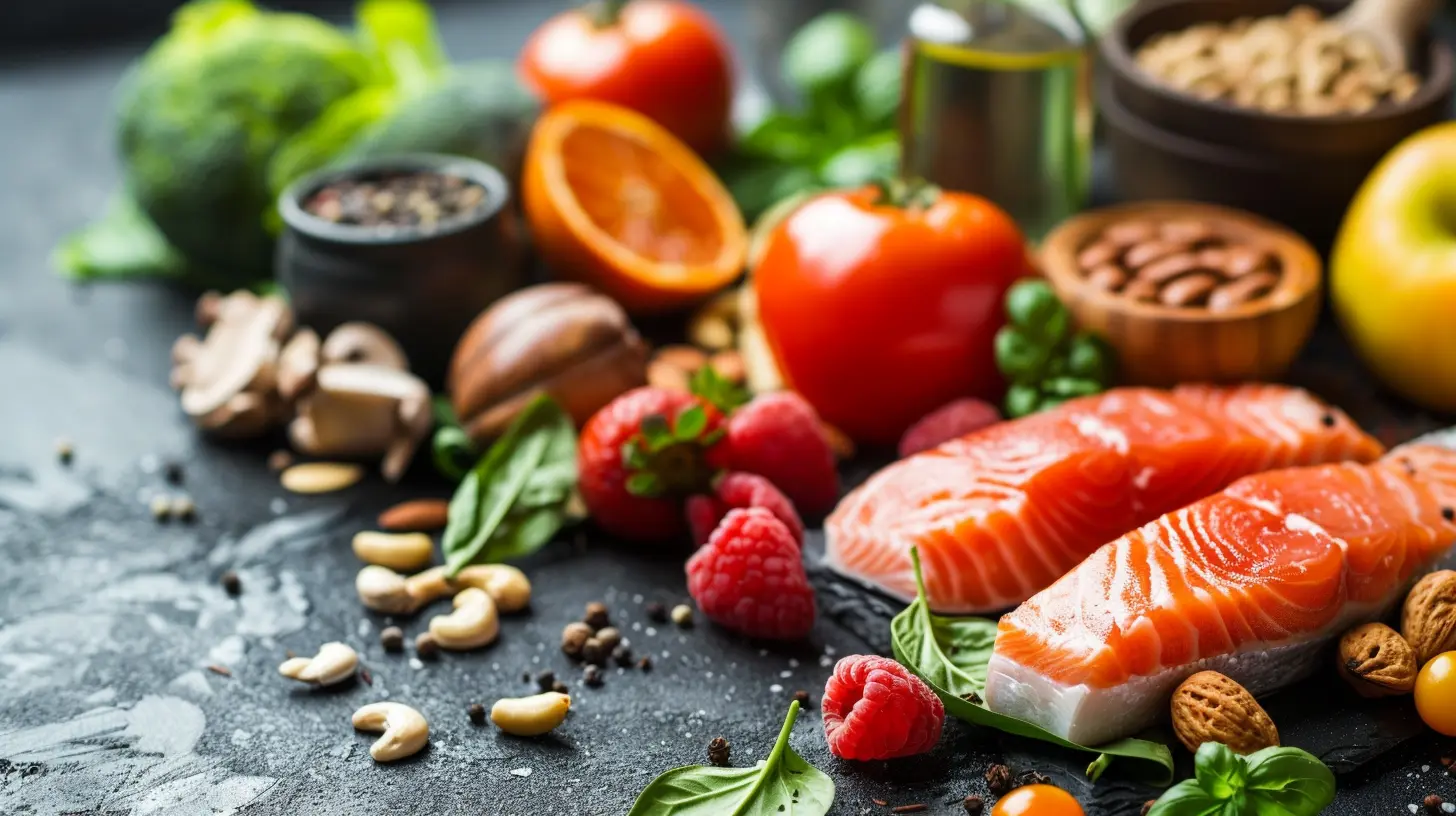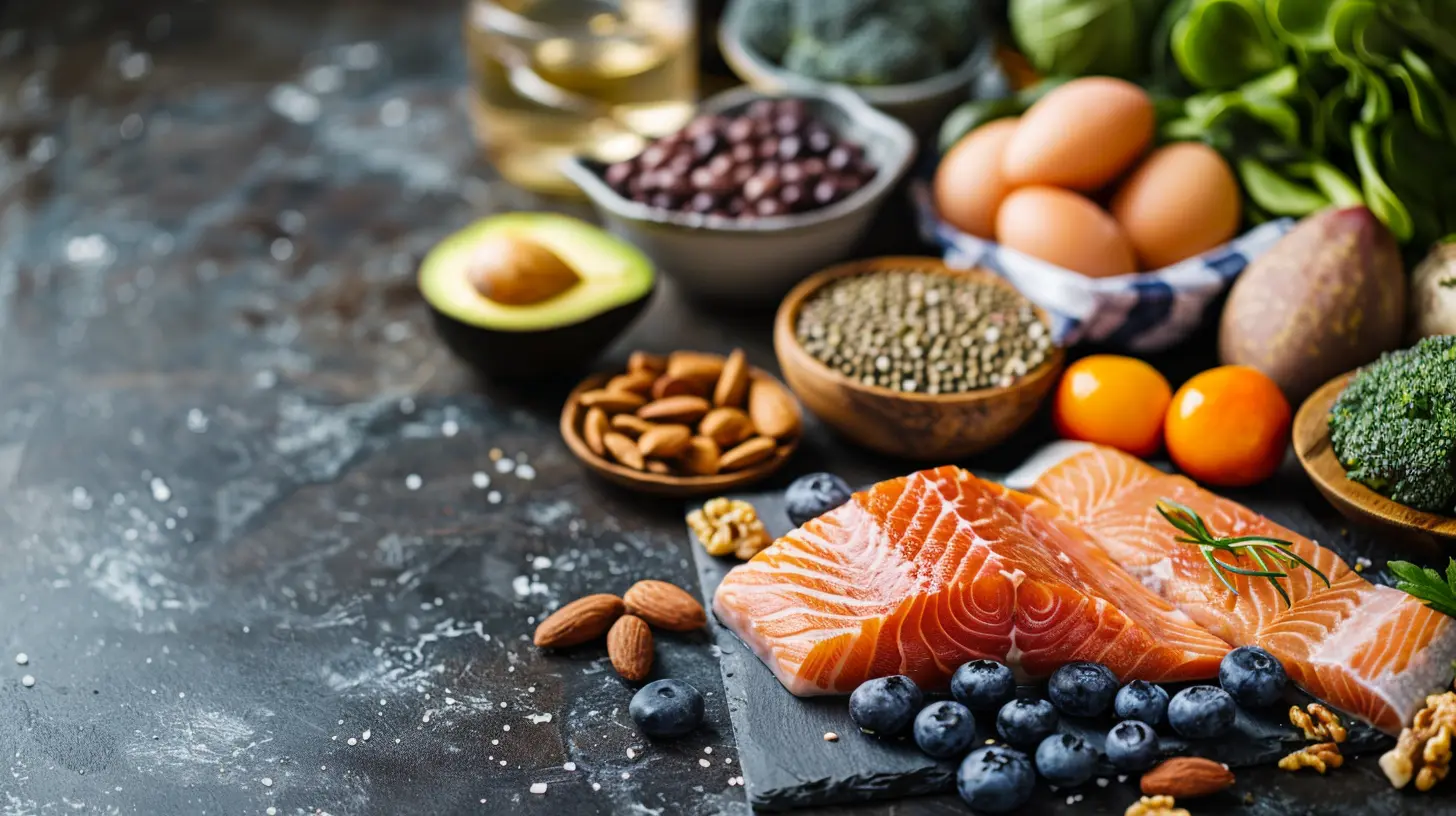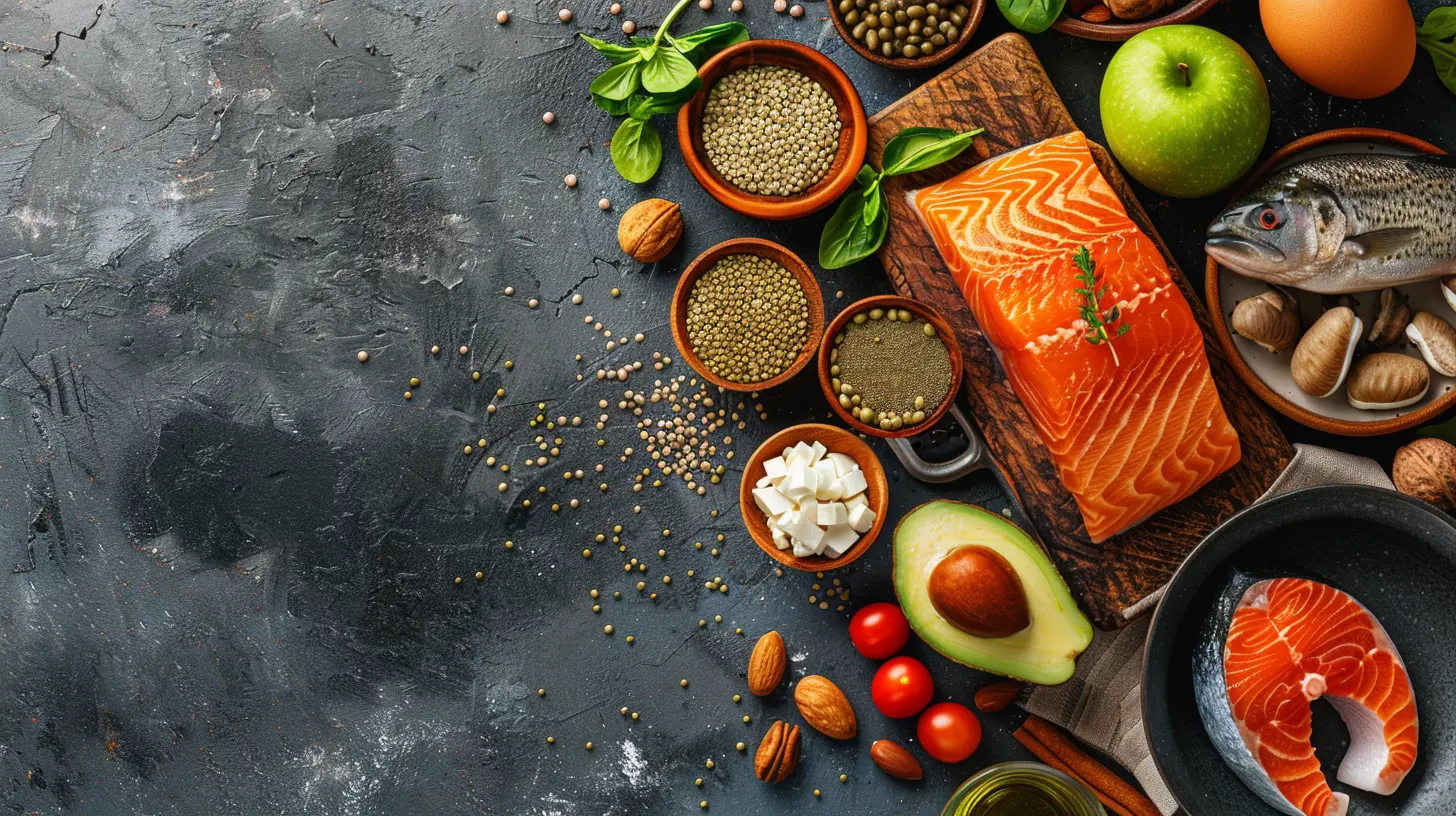Pre-Workout and Post-Workout Nutrition on the Keto Diet
28 July 2025
Let’s be real—hitting the gym takes energy and motivation. But if you're on the keto diet, you might wonder, "What the heck do I eat before and after my workout?" Good question. You’ve ditched carbs, so the usual banana-and-protein-shake combo might not be your jam anymore.
So, how do you fuel your body before and after exercise when you're running on fat instead of sugar? Keto throws a curveball into traditional fitness nutrition, but don't worry—I’ve got your back. Let’s break it all down, keto-style.
What the Keto Diet Actually Does to Your Body
Before we jump into timing meals and nutrient breakdowns, let’s hit rewind.The keto diet is low in carbs, moderate in protein, and high in fat. This combo forces your body into a metabolic state called ketosis, where fat—not carbs—is the star of the show. Instead of glucose, your body burns fat for fuel and produces ketones, which is like flipping the fuel switch in your body.
Sounds wild, right?
Once you're keto-adapted (meaning your body is comfy using fat as its primary energy source), your workouts—and your pre/post-meal game—need to adapt too.
Why Nutrition Timing Matters on Keto
On keto, your body doesn't have a huge stash of glycogen (carb-based energy). So, you’ve got to be smart about what you eat before and after a workout if you want to crush your fitness goals without crashing.Think of it like this: fueling your body for a workout is like charging your phone before a road trip. And recovery? That’s plugging it back in before the next leg of the journey.
If you're doing a gentle yoga stretch or a light walk, you might not even need to fuss with pre- or post-workout meals. But if you're lifting heavy, sprinting, or doing HIIT—yeah, you're gonna need some fuel.
Pre-Workout Nutrition on Keto: What to Eat and When
What’s the Goal?
Your pre-workout meal should give you enough energy to power through your session without spiking your blood sugar (hello, carbs—we’re talking about you).When Should You Eat?
Ideally, eat your pre-workout meal 30 minutes to 2 hours before exercise. This gives your body time to digest and convert the food into usable energy.What Should It Include?
Here’s the kicker: your pre-workout meal should be low in carbs, moderate in protein, and high in fat—just like the rest of your keto life.Great Pre-Workout Options on Keto:
- Bulletproof Coffee – Coffee blended with grass-fed butter and MCT oil gives you quick-burning fats (Thanks, ketones!)- Boiled Eggs and Avocado – Protein, fats, and fiber—super satisfying and simple.
- Almond Butter on Celery Sticks – A crunchy, fat-rich snack that won’t weigh you down.
- Hard Cheese and a Few Walnuts – Tasty, fatty, and portable.
MCT oil is your MVP here—it’s a type of fat your body turns into ketones quickly, giving you that immediate workout energy without needing carbs. Think of it like lighting a firecracker under your workout shoes.
Should You Ever Eat Carbs Pre-Workout on Keto?
Okay, here’s the controversial part: targeted keto is a variation where you eat a small amount of carbs (like 20–50g) about 30 minutes before a high-intensity workout.Crazy, right?
But for some people, this helps with performance without kicking them out of ketosis. You’ve gotta test it on yourself. If you feel sluggish during heavy workouts, try half a banana or a few berries and see how it goes.
What About Fasted Workouts?
If you work out first thing in the morning, you might not want to eat at all—which is totally fine!Fasted workouts on keto can actually be very effective because your body is already in fat-burning mode and tapping into ketones. Just make sure you’re staying hydrated and not feeling drained. Listen to your body. If you're lightheaded or sluggish—eat something!
Post-Workout Nutrition on Keto: Refuel and Recover
Now your muscles are screaming, sweat’s dripping, and you feel like a beast. Time to recover, right?Yes—but you don't need a sugar-filled protein shake to do it.
When Should You Eat After Working Out?
Aim to eat within 30 to 60 minutes post-workout. This is the golden recovery window when your muscles are most receptive to nutrients.What Should It Include?
The focus after a workout is:- Protein to repair and build muscle
- Fat to keep you in ketosis
- A pinch of electrolytes to replenish what you lost in sweat
Awesome Post-Workout Keto Meals:
- Grilled Chicken Thighs with Olive Oil and Veggies- Salmon Salad with Avocado and Olive Oil
- Keto Protein Shake – Use unsweetened almond milk, a scoop of low-carb protein powder, and some MCT oil.
- Scrambled Eggs with Spinach and Cheese
A good rule of thumb is 20–30g of protein after a workout. Don’t skip the fat either—it steadies your energy and keeps you in the keto zone.
The Role of Protein on Keto: Too Much or Just Right?
On keto, people often fear protein like it’s Voldemort. But here’s the deal: protein is crucial post-workout. You need it to rebuild muscle and recover, plain and simple.Yes, excess protein can convert to glucose in a process called gluconeogenesis—but this is a slow, controlled process. It’s not gonna kick you out of ketosis unless you go completely overboard.
So, don’t be afraid of a protein-packed post-workout meal. Your muscles will thank you.
Electrolytes: The Unsung Hero of Keto Workouts
You might not think of salt, magnesium, or potassium when planning your gym sessions, but when you're on keto, these electrolytes are your silent workout partners.Why? Because keto makes your body shed water, and with it, you lose sodium, potassium, and magnesium. This can leave you feeling "keto flu"-ish—fatigued, weak, crampy. Not fun mid-burpee.
Easy Ways to Replenish Electrolytes:
- Add a pinch of Himalayan salt to your water- Sip on electrolyte drinks (make sure they’re sugar-free)
- Munch on foods rich in mag and pot like spinach, avocados, and nuts
Balance those electrolytes, and you’ll feel like you’ve powered up in a video game.
Supplements to Consider for Keto Workouts
Not everything needs to come from food, especially when you're pushing your body. Here are a few keto-friendly supplements to boost performance and recovery:1. MCT Oil – Quick energy and ketone production
2. Creatine – Helps with strength and performance, keto or not
3. BHB Salts – These are exogenous ketones that can support energy during intense workouts
4. Electrolyte Mixes – Hydration is key, especially with sweat loss
5. Whey or Collagen Protein – Quick, digestible protein for muscle repair
Keep it simple—don’t go overboard. Use supplements to fill in the gaps, not as the foundation.
Sample Keto Pre- and Post-Workout Meal Plan
Let’s tie it all together! Here’s what your actual day might look like if you’re working out on keto:Morning Workout (Fasted)
- Pre: Just water + black coffee with MCT oil- Post: 3 scrambled eggs with spinach cooked in coconut oil + a few slices of avocado
Afternoon Workout
- Pre (1 hour before): Almond butter on a small celery stick + 1 boiled egg- Post: Grilled salmon + roasted broccoli with olive oil + a keto electrolyte drink
Evening Workout
- Pre (30 mins before): ½ scoop of BHB ketones + a handful of macadamia nuts- Post: Keto protein shake with unsweetened almond milk, collagen powder, and MCT oil
Final Thoughts: Keto and Workouts Can Totally Coexist
Honestly, working out on keto might take some getting used to. At first, you might feel sluggish or like you’re missing that “spark.” That’s totally normal while your body adapts.But once you’re keto-adapted? You become a fat-burning machine with crazy endurance and mental clarity to match.
The trick is to be mindful of your fuel, experiment with timing, and listen to your body. Keep your pre-workout fat-based and light. Load up on protein, fats, and electrolytes after. And don’t forget to hydrate like your gains depend on it—because they do!
Alright, ready to crush your workout the keto way?
all images in this post were generated using AI tools
Category:
Keto DietAuthor:

Arthur McKeever
Discussion
rate this article
1 comments
Rhea Alexander
Great article! Fueling your body right before and after workouts on the keto diet is key to feeling fantastic. Remember, it’s all about balance and enjoying the journey—keep rocking those workouts and savoring those delicious keto snacks!
August 1, 2025 at 4:27 PM

Arthur McKeever
Thank you! I'm glad you found the article helpful. Balance and enjoyment are indeed crucial for success on the keto journey. Keep up the great work!


